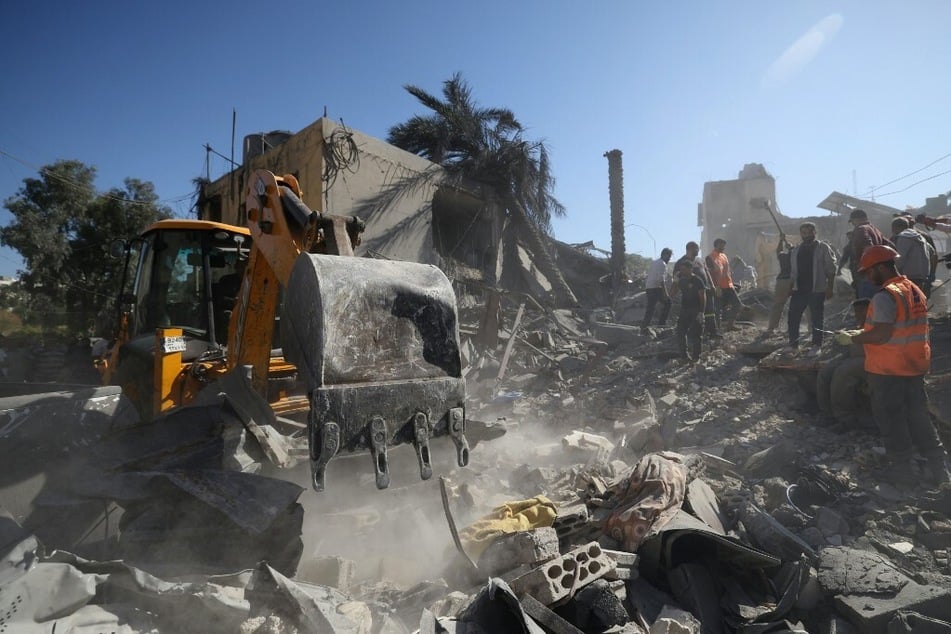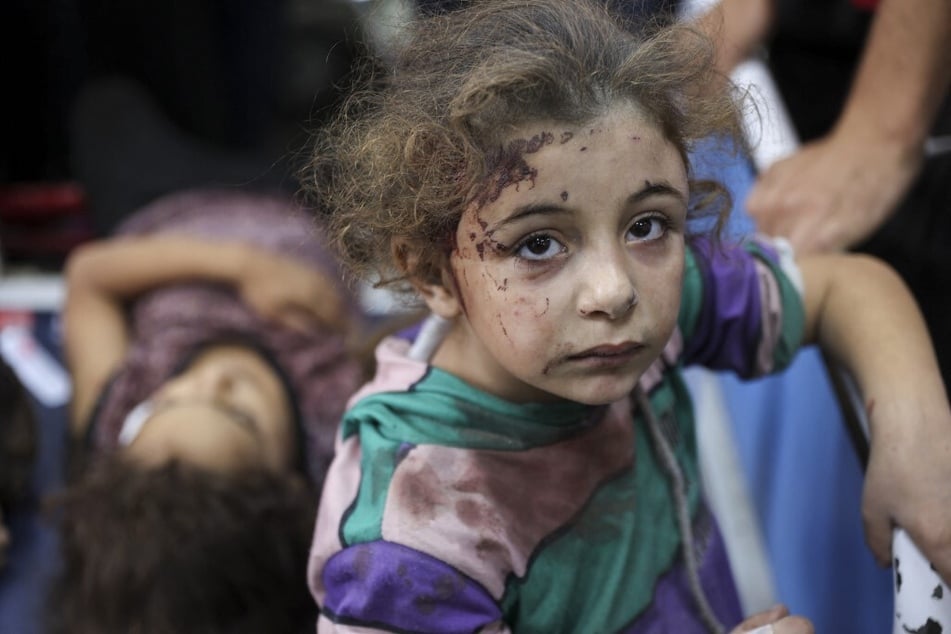Blinken arrives in Tel Aviv for Gaza ceasefire talks as Israel continues deadly assault
Tel Aviv, Israel - US Secretary of State Antony Blinken was in Israel Tuesday to push for a ceasefire in Gaza after his administration called for an end to the war on Lebanon "as soon as possible."

It is Blinken's 11th trip to the Middle East since Israel launched its all-out assault on Gaza last October 7, and his first since Israel's attacks on Lebanon escalated late last month.
He is due to meet Prime Minister Benjamin Netanyahu and other top officials, as Israel weighs its response to Iran's retaliatory October 1 missile attack.
In Lebanon, Israel hit an area of south Beirut housing the country's largest public health facility, killing 13 people, according to the health ministry. The Rafic Hariri Hospital sustained minor damage in the strike, which flattened four buildings in its vicinity, said an AFP correspondent in the area.
Previous US efforts to end the Gaza genocide and contain the regional fallout have failed, as did a bid spearheaded by President Joe Biden and his French counterpart Emmanuel Macron to secure a temporary ceasefire in Lebanon.
The White House has so far failed to block weapons transfers to Israel, despite mounting public demands for an arms embargo.
After Israel, Blinken will visit Jordan on Wednesday and discuss humanitarian aid for the Gaza Strip, an official on the plane with him said.
Blinken also plans to speak to Israeli leaders about the expected strike on Iran and discourage any move that could massively escalate regional conflict, the official said.
Israel ramps up attacks on Lebanon

On Monday, US envoy to Lebanon Amos Hochstein said his administration was seeking an end to the war "as soon as possible" as he pushed for a ceasefire based on a UN resolution that had ended an earlier Israel-Hezbollah war.
Under Security Council Resolution 1701, Hezbollah should have withdrawn from areas in south Lebanon near the Israeli border, leaving only the country's weak military and UN peacekeepers deployed there. But Hezbollah remained south of Lebanon's Litani River.
After over a year of its assault on Gaza, Israel has widened its focus to Lebanon, ramping up air strikes and on September 30 sending in ground troops. Israel has killed at least 1,489 people in the country since September 23, according to an AFP tally of Lebanese health ministry figures.
The strike on Monday night came as Israel targeted Beirut's southern suburbs with heavy fire following evacuation warnings. The densely populated Ouzai neighborhood a few miles from the city center was hit for the first time in the conflict, sparking an exodus of residents.
A Lebanese security official told AFP that the country's national airline had to switch landing strips after Israeli strikes near Beirut's only international airport hit close to the main runway.
Hezbollah on Tuesday said it launched rockets targeting two positions in the suburbs of Israel's commercial hub Tel Aviv, including an intelligence base. It also said it targeted Israel's Stella Maris naval base near the northern city of Haifa, and that its militants had clashed with Israeli troops near a village at the border.
Israel is obliterating northern Gaza

In the Gaza Strip, Israel launched a major air and ground assault in northern Gaza earlier this month.
Gaza's civil defense agency said four Palestinians were killed in strikes on Monday, while several homes were blown up in the northern area of Jabalia, a focal point of recent Israeli attacks.
A displaced resident said Jabalia "is being wiped out."
"If we don't die from the bombing and gunfire, we will die of hunger," said 42-year-old Umm Firas Shamiyah, demanding aid be sent to the north.
Tens of thousands of people are estimated to have fled the assault on northern Gaza, and according to the UN agency for Palestinian refugees around 400,000 people were trapped in the area last week.
The UN has warned of the risk of famine in Gaza, its figures showing that 396 aid trucks have entered the territory so far this month – far below the 3,003 seen in September – due to a brutal Israeli blockade.
Blinken has been accused of approving an Israeli policy allowing its military to blow up any aid trucks bound for Gaza that it claimed were linked to Hamas.
Israel's bombing and ground invasion of Gaza have killed at least 42,603 people in the last year, according to data from the territory's health ministry. The British medical journal Lancet and other experts believe the true number to be far greater, potentially upwards of 186,000 as of July.
Cover photo: REUTERS

